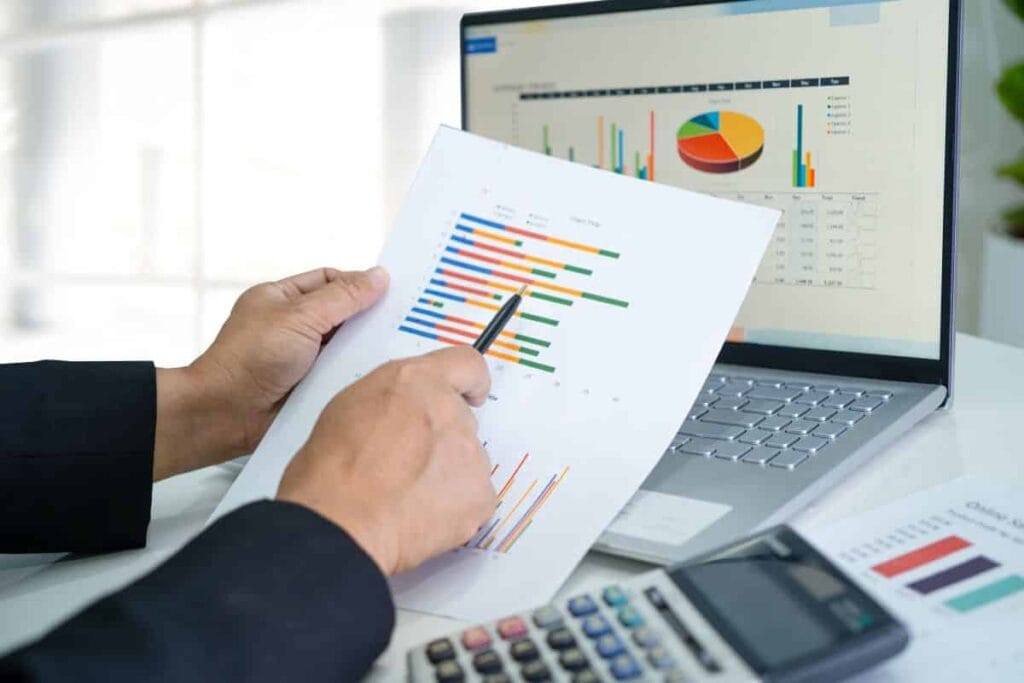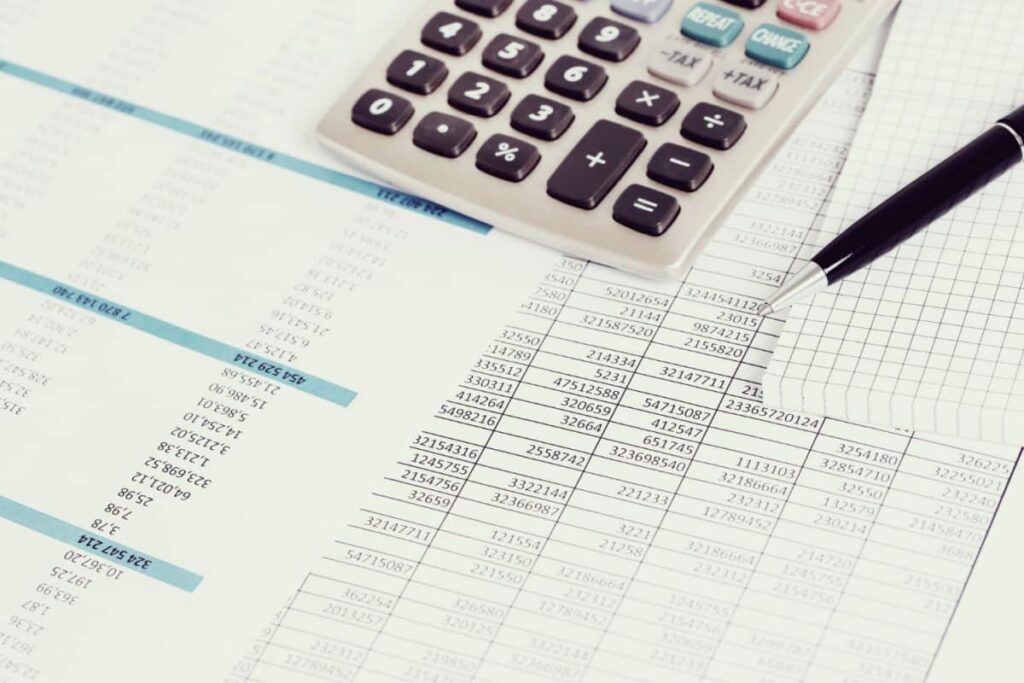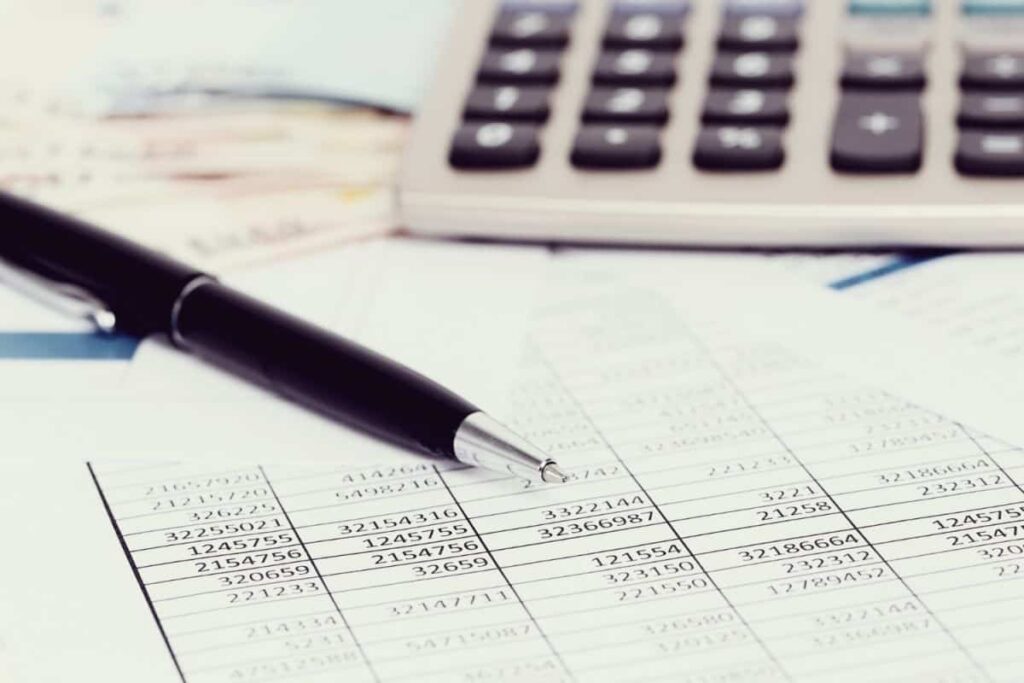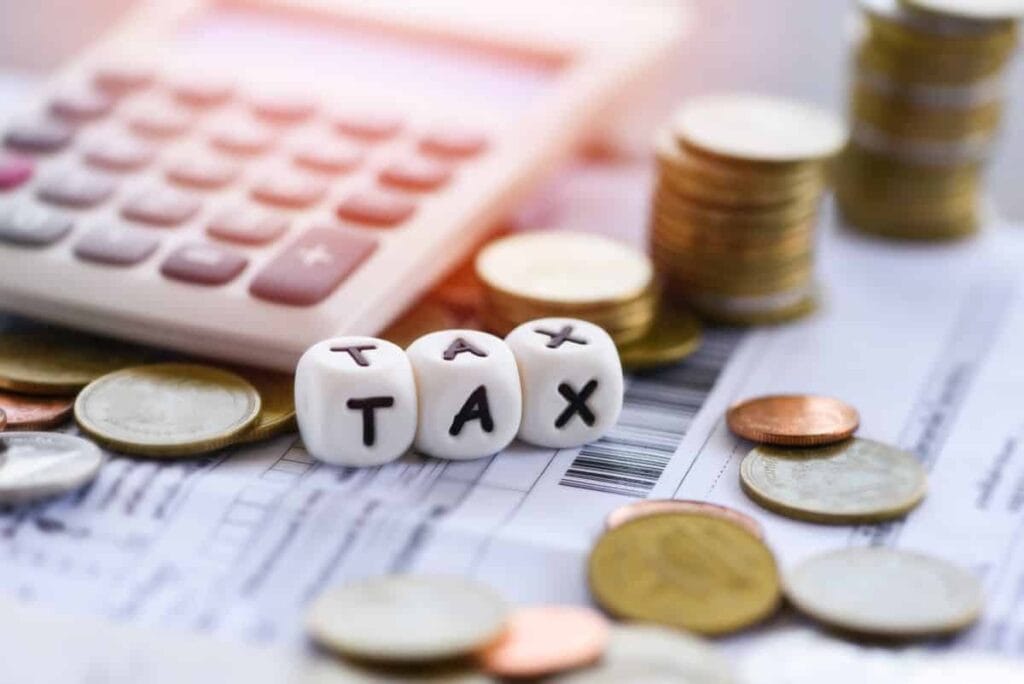Many of us search drawers and files for receipts during tax season. Effective receipt management saves time and boosts tax refunds. How to organise receipts and maximum returns:
Understand What’s Deductible
Tax deductions are complicated, but getting the most out of them is crucial. We describe what you can claim on your Australian tax return:
1. Work-Related Expenses
- Vehicle and Travel Costs: You can claim automobile expenditures for work-related activities (excluding home-to-work travel), including gasoline, maintenance, and depreciation. Keep a logbook or use the cents per kilometre method for calculation.
- Home Office Costs: Understanding home office deductions is crucial as more Australians work from home. You can depreciate heating, cooling, lighting, and furnishings if you have a distinct workstation.
- Clothing and Laundry: Claim work-specific uniforms, safety clothes, and washing costs. Casual attire, even to work, doesn't count.
- Self-Education Expenses: These charges may be deductible if you improve your employment abilities. This covers tuition, textbooks, stationery, and course-related travel.
2. Investment-Related Deductions
- Rental Property Expenses: Property owners can deduct tenant advertising, agency expenses, and loan interest.
- Dividend Deductions: You can claim investment management costs, including specialised advice if you get dividends.
3. Miscellaneous Deductions
- Charitable Donations: Registered charity donations are tax-deductible. You must have a receipt for donations above $2.
- Tax Affairs Management: Tax agent fees and other tax management costs are deductible.
- Tools and Equipment: These costs can be claimed for those needing them or equipment to perform their job. This includes both the initial purchase and any maintenance or repair costs.
4. Key Tips to Remember
- Not Everything is Deductible: Fines, employer-reimbursed expenditures, and personal expenses are not deductible.
- Keep Records: Keep all receipts, regardless of size. If work-related costs exceed $300, you must provide documented proof.
Understanding Australian tax deductions may greatly impact your tax return. Knowing the subtleties and staying current is key. When in doubt, consult a tax professional to maximise tax deductions.
Go Digital
Today's digital world makes receipt management easier and more efficient. Technology may improve your tax paperwork, especially tracking deduction receipts. Australia needs digital record-keeping, not only for convenience.
Discuss digital solutions. Several applications simplify receipt handling. Start with the ATO's myDeductions tool. The ATO app lets you keep receipt photos and track income and spending throughout the year. Its ability to upload your data directly to your tax return or share it with your tax agent makes it particularly handy. It's a straightforward way to keep your tax records in one place.
But the ATO's tool is just one of many. Other apps like Receipt Bank offer more advanced features. These programs can classify, extract, and combine receipt data with accounting software. This reduces manual input and mistakes. Cloud storage lets you retrieve receipts anytime, anywhere, which is great for busy people.
Digital tools also mean better security and longevity for your records. Fatigue, loss, and damage can occur with paper receipts. Digital copies saved in the cloud are hard to harm and easy to back up. This meets the Australian Taxation Office's five-year recordkeeping requirement.
But why stop at receipts? These digital tools can track mileage, log work hours, and even manage invoices. They are not just for tax time but for year-round financial management. Consistency and regularity matter. More frequent digital record updates make tax time easier.
Using digital receipt management for tax efficiency and effectiveness is sensible, not merely a trend. These resources help you prepare for tax season and financial success year-round.
Stay Organised Throughout the Year
Staying organised throughout the year is like keeping a garden tidy: do a little bit regularly rather than a lot all at once. This parallel applies mainly to tax revenues and financial records.
The end of the financial year may be a hurry to gather and manage a year's receipts and documentation for many Australians. A few easy habits and practices can minimise the challenge. Integrate these into your everyday routine, so they become automatic rather than burdensome.
Set up a system, such as a computer folder or phone app. Financial records should be stored in one place for easy access. Record all work-related purchases and tax-deductible expenses. Photographing and uploading a receipt to your app or folder is straightforward with a smartphone. Using certain applications to classify or categorise receipts on the move might save a lot of time.
Regularly reviewing and organising your records weekly or monthly is another important practice. This may be a calm Sunday afternoon or a few minutes on Friday before bed. Be sure to keep all your receipts, classify them if you haven't previously, and write notes to recall what each expense was for. Regular check-ins minimise the worry of remembering a transaction from months ago.
Australian self-employed and small company proprietors must be even more structured. Understanding your cash flow is crucial to your business's health, especially if your spending is complicated. Updating your records regularly prepares you for tax time and provides financial insights into your organisation.
Remember, keeping organised goes beyond tax time. It's about financial management and educated judgements throughout the year. Adding these habits to your daily routine can make managing your finances easier and smoother.
Understand the Importance of Details
Details matter when it comes to Australian tax deductions. Each receipt and record must fulfil ATO criteria. A closer look at the practical implications:
1. Key Elements of a Valid Receipt
- Supplier’s Name: The ATO requires the supplier's name or store on the receipt. This establishes where the purchase was made and helps in verifying the expense.
- Amount of the Expense: Clearly, how much you spend is pivotal. This figure should include GST, which can affect your deduction amount if applicable.
- Nature of the Goods or Services: It’s not enough to know where you spent your money; you must also show what you bought. The receipt's description should clarify that the purchase relates to earning your income.
- Date of the Expense and Document: The date is essential for proving that the expense occurred in the relevant tax year. It’s also crucial for keeping track of the five-year retention period required by the ATO.
2. Accuracy Matters
Ensuring that each receipt you collect and intend to claim has these details is more than just an administrative task. It's important to have accurate compliance documents to support your claims if requested. Organising and completing your receipts makes obtaining deduction documentation easier for the ATO.
3. Digital Records and Details
As we go paperless, digital receipts are becoming more ubiquitous. These are as legitimate as paper ones but include all the relevant information. Email and internet receipt screenshots should be as detailed as paper receipts.
4. Handling Missing Details
If you find a receipt missing crucial details, it's better to address this sooner rather than later. Contact the supplier for a proper tax invoice, especially for larger expenses. Keep a notepad or digital journal to record additional purchase data and context.
Attention to receipt information may seem boring, but it's essential to a tax return that's correct and compliant. Understanding the needed facts and ensuring each receipt fulfils these standards prepares you for tax season and protects you against ATO concerns, ensuring you get the return you deserve.
Know the Retention Rules
Financial record keeping is vital to taxes but sometimes needs to be considered. Understanding how long the Australian Taxation Office (ATO) requires you to preserve your tax documents might save you a lot of worry.
Records should be kept for five years after submitting your tax return. These records include receipts and other tax documentation. This time is critical because the ATO may request certain papers to substantiate your claims. You must preserve records for five years after claiming a deduction for a depreciating asset.
Why five years? This timeframe aligns with the ATO's time to question, review, or audit your tax affairs. It's their way of ensuring taxpayers maintain evidence of their claims, allowing for a smooth and efficient review process.

But it's about more than just being compliant with the ATO. Keeping these records can also help you. They're useful for managing your finances and making tax return changes. If inconsistencies exist or you're entitled to a greater return, easily available paperwork can help.
For digital records, which are increasingly common, the same rules apply. Make sure your digital copies are clear, full, and accessible. Backup your files periodically to avoid loss. This is crucial in the digital age when technical faults may erase data.
Capital gains tax records may be kept longer. If you need clarification, examine the rules or consult a tax specialist.
Knowing and following ATO retention guidelines is crucial. Compliance and a stable financial base are ensured. So, embrace the habit of keeping your tax records in order - it's a practice that serves both legal and personal financial management purposes well.
Seek Professional Advice
Tax information is abundant, making it feel like navigating a maze. Expert counsel might be invaluable to maximise your tax deductions and avoid losing money.
Australia has complex and changing tax rules, making Tax Warehouse a useful tax agency. Tax Warehouse excels in maximising deductions and helping customers save money on taxes. Because every financial situation is different, we provide customised guidance. Your buddy's or neighbour's strategy may not work for you.
Our Tax Warehouse team listens to your situation. We consider your income, spending, investments, and special circumstances. This customised method maximises deductions and tax advantages.
Our easy and affordable tax return filing is a highlight. Online applications are incredibly convenient in the digital era. Tax Warehouse's authorised tax agents will help you through the procedure from home. They can explain the procedure, answer questions, and remind you that a professional is managing your taxes.
Tax agents' fees are normally tax-deductible the following year. You're getting professional guidance to optimise your refund this year and set yourself up for a deduction next year.
Manage your taxes alone, but tax regulations are complicated, and you may overlook deductions, so expert help is recommended. Tax Warehouse provides a simple, customised, and experienced solution that simplifies tax filing and enhances your refund. Trusting an expert may make all the difference in taxes.
Conclusion
In conclusion, tracking receipts and tax records is more than an annual chore—it's crucial to your financial health. In Australia, where the tax system is as complicated as the outback, keeping track of your receipts might result in a larger tax refund and less stress during tax season.
Each receipt management process is important, from knowing what's deductible to using the digital revolution in record-keeping. It's not just about saving those small bits of paper or digital records; it's about recognising what they represent and how they might help you at tax time.
This trip requires being organised throughout the year, paying attention to receipt details, and following ATO retention standards. If the way looks complicated, seek professional help. Tax Warehouse can help you avoid losing money.
Each receipt you gather, from the café to your home office, tells your financial narrative. Take care of them, arrange them, and you may get a bigger tax return at tax time. We wish you smoother tax waters and more money at the end of the year!
Content Summary
- Effective receipt management is crucial during tax season, saving time and boosting tax refunds. To maximise deductions, it is essential to understand what is deductible, such as work-related expenses, investment-related deductions, miscellaneous deductions, and keeping records.
- Understanding Australian tax deductions is crucial for maximising tax refunds.
- Some deductions include vehicle and travel costs, home office costs, clothing and laundry, self-education expenses, rental property expenses, dividend deductions, charitable donations, tax affairs management, and tools and equipment.
- It is important to keep all receipts, regardless of size, and provide documented proof if work-related costs exceed $300.
- To go digital, consider using digital solutions like the ATO's myDeductions tool, which allows you to keep receipt photos and track income and spending throughout the year.
- Other apps like Receipt Bank offer more advanced features, such as classifying, extracting, and combining receipt data with accounting software, reducing manual input and mistakes.
- Cloud storage also allows for retrieval of receipts anytime, anywhere, making it convenient for busy people.
- Digital tools also provide better security and longevity for your records, as digital copies saved in the cloud are hard to damage and easy to back up.
- They meet the Australian Taxation Office's five-year recordkeeping requirement.
- Digital tools can track mileage, log work hours, and manage invoices, making tax time easier.
- Consistency and regularity matter and more frequent digital record updates make tax time easier.
- Staying organised throughout the year is similar to keeping a garden tidy: do a little bit regularly rather than a lot all at once.
- This parallel applies mainly to tax revenues and financial records.
- To minimise the challenge of gathering and managing a year's receipts and documentation, integrate these habits into your everyday routine.
- Set up a system, such as a computer folder or phone app, to store financial records in one place for easy access.
- Record all work-related purchases and tax-deductible expenses, and use certain applications to classify or categorise receipts on the move.
- Regularly reviewing and organising your records weekly or monthly is another important practice.
- Keep all receipts, classify them if necessary, and write notes to recall each expense.
- For Australian self-employed and small business proprietors, understanding cash flow is crucial for their business's health, especially if their spending is complicated.
- Updating your records regularly prepares you for tax time and provides financial insights into your organisation.
- In summary, effective receipt management is essential for maximising tax refunds and ensuring financial success throughout the year.
- By incorporating these habits into your daily routine, you can make managing your finances easier and smoother.
- In summary, tracking receipts and tax records is crucial for financial health in Australia.
- Each receipt must meet the Australian Taxation Office (ATO) criteria, which include key elements such as supplier's name, amount of expense, nature of goods or services, date of expense, and document.
- Accuracy is also important, as it helps to ensure that deduction documentation is easier for the ATO.
- Digital receipts are becoming more prevalent and should be as detailed as paper ones.
- If a receipt is missing crucial details, it is better to address this sooner rather than later.
- Contact the supplier for a proper tax invoice, especially for larger expenses, and keep a notepad or digital journal to record additional purchase data and context.
- Financial record keeping is vital to taxes but sometimes needs to be considered.
- The ATO requires records to be kept for five years after submitting your tax return, including receipts and other tax documentation.
- This timeframe aligns with the ATO's time to question, review, or audit your tax affairs, ensuring taxpayers maintain evidence of their claims.
- Keeping these records can help you manage your finances and make tax return changes.
- If inconsistencies exist or you are entitled to a greater return, easily available paperwork can help.
- Digital records should be clear and fully accessible, and back up your files periodically to avoid loss.
- Capital gains tax records may be kept longer, and if you need clarification, examine the rules or consult a tax specialist.
- Knowing and following ATO retention guidelines is crucial for compliance and a stable financial base.
- Embrace the habit of keeping your tax records in order, serving legal and personal financial management purposes well.
- Seek professional advice from Tax Warehouse, a useful tax agency that excels in maximising deductions and helping customers save money on taxes.
- The Tax Warehouse team listens to your situation, considering your income, spending, investments, and special circumstances. This customised method maximises deductions and tax advantages.
- Tax Warehouse offers easy and affordable tax return filing with online applications that are incredibly convenient in the digital era.
- Tax agents' fees are usually tax-deductible the following year, providing professional guidance to optimise your refund this year and set yourself up for a deduction next year.
- Manage your taxes alone, but tax regulations are complicated, and you may overlook deductions, so expert help is recommended.
- Tax Warehouse provides a simple, customised, and experienced solution that simplifies tax filing and enhances your refund.
- Trusting an expert may make all the difference in taxes.
- In conclusion, tracking receipts and tax records is more than an annual chore—it's crucial to your financial health.
- In Australia, where the tax system is as complicated as the outback, keeping track of your receipts might result in a larger tax refund and less stress during tax season.
- Each receipt management process is important, from knowing what's deductible to using the digital revolution in record-keeping.
Frequently Asked Questions
Keeping receipts is important since they prove your spending. To claim tax deductions in Australia, you must keep track of your costs. Keeping receipts organised helps you claim properly and optimise your tax refund.
Request a receipt from the supplier if you lose one. If that's impossible, write down the expense's date, amount, and kind. Although the ATO prefers receipts, they may accept comprehensive written documentation for modest costs.
Before filing your Australian tax return, you must retain your tax documents and receipts for five years. Important because the ATO may request these data to support your claims during this timeframe.
Consulting a tax professional might be helpful if you have complicated taxes or many deductions. Registered tax agents can advise you, help you claim deductions, and organise your receipts and documents.















